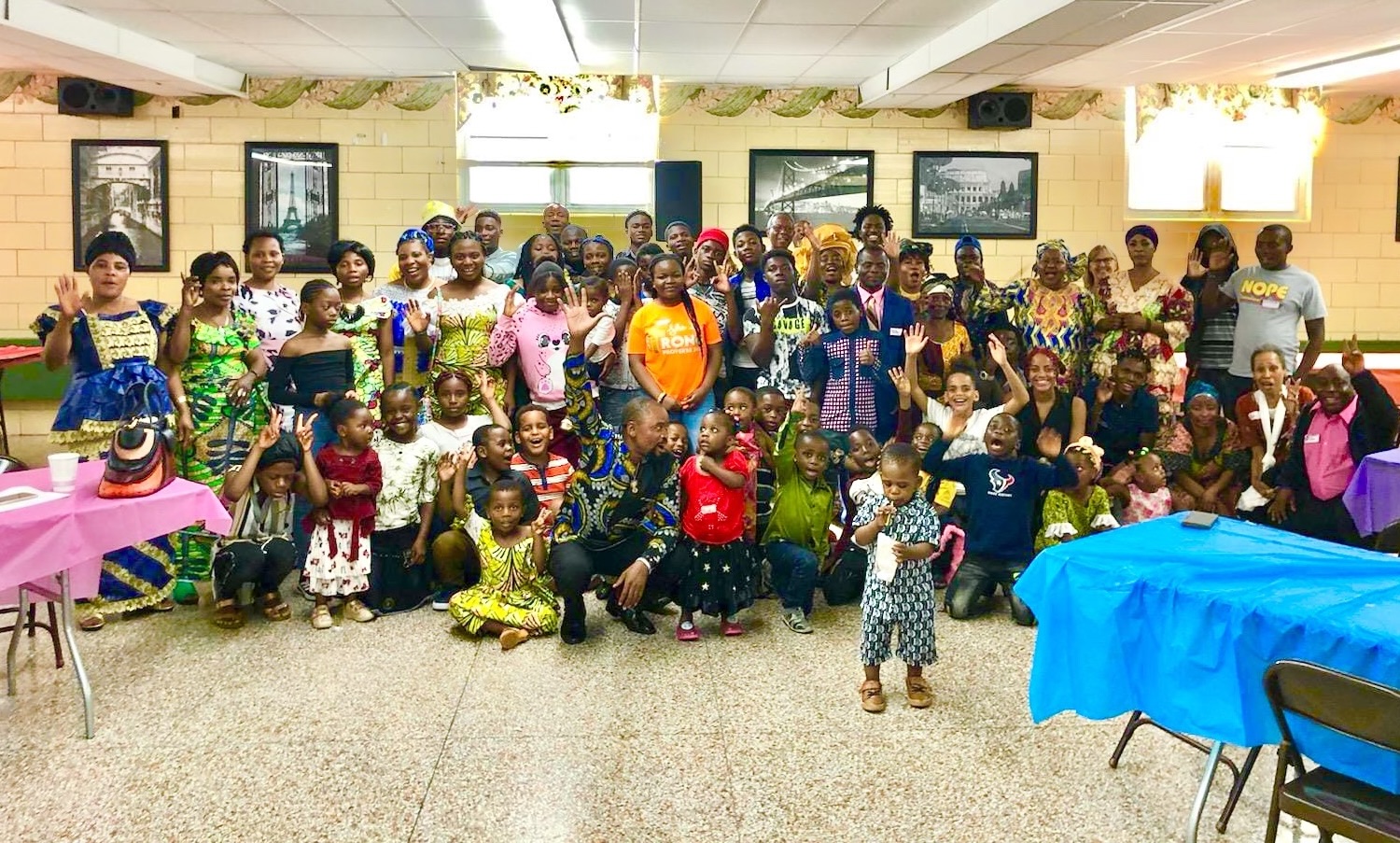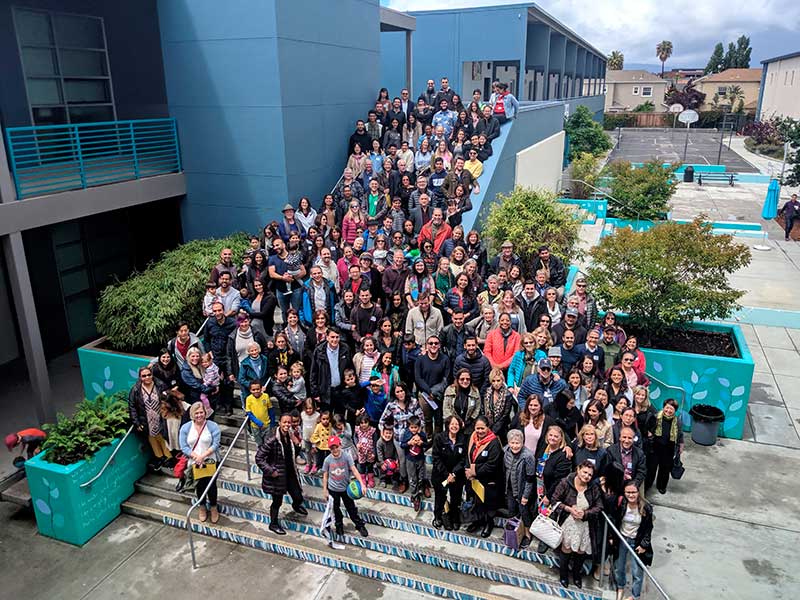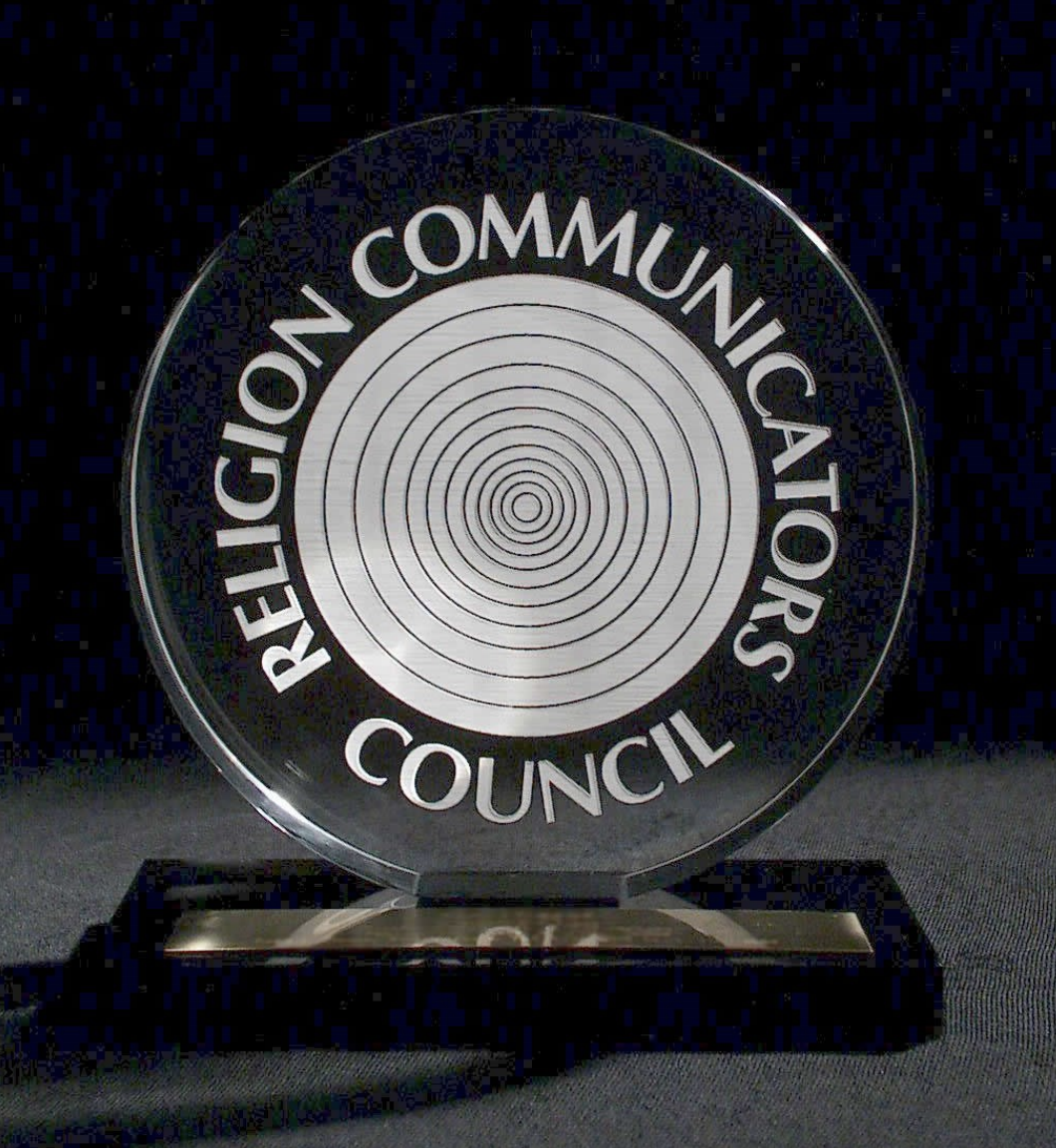
The ‘marafiki’ and friends: Conference brings together Congolese community from Ohio and Indiana

Reported by Nadia Mehretab
“Marafiki” is Swahili for “friends.” It was a spirit of friendship that kept plans on track for a joyous gathering of people from cities in two states — supporting one another through a tragic loss — to celebrate Congolese culture and to talk about a vision for releasing the society-building power of the Baha’i teachings.
That August 2022 event in Cleveland, the Marafiki Conference, was one of a series of conferences hosted by Baha’is in many locales around the world, aimed at stimulating efforts to build vibrant communities over the upcoming nine years. It attracted about 100 people from Indiana and Ohio, about two-thirds of whom were Baha’is.
Dances, songs and colorful dresses and tunics from the Congo region abounded. One mother “sang a song about how Baha’u’lláh has set them free,” says Kyenge Elale, part of the event planning group. Children and young teens delighted the gathering with a dance they had devised to help memorize the Baha’i quotation: “O Son of Spirit! My first counsel is this: Possess a pure, kindly, and radiant heart that thine may be a sovereignty, ancient, imperishable, and everlasting.”
And in smaller groups, people talked about ways they could learn and pray together and strengthen the community in their neighborhoods. Some resolved to study Ruhi Institute courses together to build their capacity for service, and “there were friends who would like to start devotions with their friends,” Elale says.
Momentum from this gathering has stimulated devotional, study and reflection activities in Cleveland and Akron, especially focused on youth.
How this conference came together is a testament to the power of love and unified action.
Shared experiences
People in this community call themselves marafiki, or friends. Whether they know each other closely or not, many have shared the experiences of escaping wars in the Democratic Republic of the Congo, then spending years at refugee camps in Tanzania before coming to the United States.
Marafiki who are Baha’is live in several Ohio cities. The Local Spiritual Assembly of Cleveland, the governing council for the city’s Baha’i community, encouraged Congolese Baha’is to plan a conference to bring Swahili speakers together to talk about how the Baha’i teachings can be applied to build a healthy society.
A study group for Swahili speakers had already been meeting weekly in each other’s homes for about two years. These friends and family pivoted easily to become a planning task force for the conference, says Elale, a young adult who is one of the regular participants.
For what they came to call the Marafiki Conference, they looked through discussion materials that were suggested for the worldwide series of conferences, and they chose themes that would be most relevant in encouraging these friends and families. They arranged for artistic and friendship-building activities. They drew up a budget in consultation with the Spiritual Assembly. And they reserved a meeting space for a date in July. The anticipation built for a spiritually powerful gathering.
Then came a shock. A child in one of the Congolese families was fatally injured in a car accident only a few days before the scheduled event. The funeral was on the same date the gathering was set to take place.
Quickly, the planning team consulted and decided that postponing the conference would best fit the spirit of fellowship and unity, even at the risk of losing the meeting place. Fortunately, with the circumstances explained, the management of the venue allowed a rescheduling of the event to August.
“I saw the community”
This time the conference came together as scheduled. Elale expressed great appreciation for the sponsoring Spiritual Assembly of Cleveland, which offered support with logistics and paid expenses, including transportation.
And the result? “I saw the community that Baha’u’llah wants us to live in,” Elale says. Mingling and talking with Congolese were people from elsewhere in Africa, alongside some U.S.-born and Iranian-American Baha’is. “The diversity was great, seeing people who don’t speak English, people who speak English … they were all there,” he says.
He admits some people were at first disappointed in the numbers, because before the postponement it was hoped the conference would draw more than 200 people. And many participants were eager to share with their neighbors the remedy for the world’s ills that they see within the Baha’i message.
But the conference was all about building enthusiasm for that sharing. Baha’is and their friends commented that they “really, really enjoy what we’re doing,” Elale says. “They would like this meeting to be continuous in our own neighborhood, not just as a big group, but as individuals or as small groups in our neighborhood.” And a number of them planned next steps: to contact others to pray and study together, to build capacity and to identify ways to improve their spiritual and material lives.
Since then, the marafiki in Cleveland are maintaining a weekly devotional gathering, using that space to talk about supporting Bahá’í youth in neighborhood-level service, especially those who have been trained in the first two Ruhi Institute courses..
Conference planners learned many lessons about collaboration, outreach, practical logistics and finances adding to their strength in organizing activity. Elale particularly pointed to the collaboration between the Spiritual Assembly and the marafiki: “As we are planning to do anything, we have to communicate on every step that we are going to take,” he says.
He adds that the conference’s rich diversity in age, language and background helped participants see a glimmer of Baha’u’llah’s vision for a united human race in a just and peaceful world.
“We were there for a great purpose: community,” Elale says. And building a community with inspiration from the teachings of Baha’u’llah brings some responsibilities, he notes: to arise on a path of service, help more friends learn about the Baha’i message, and have faith that “people can change. Once the Word of God influences us, … [it can] change the way we think, change the way we act so we can bring that reality.”





